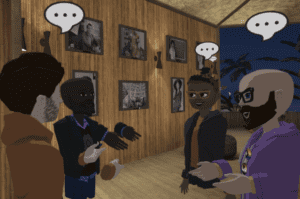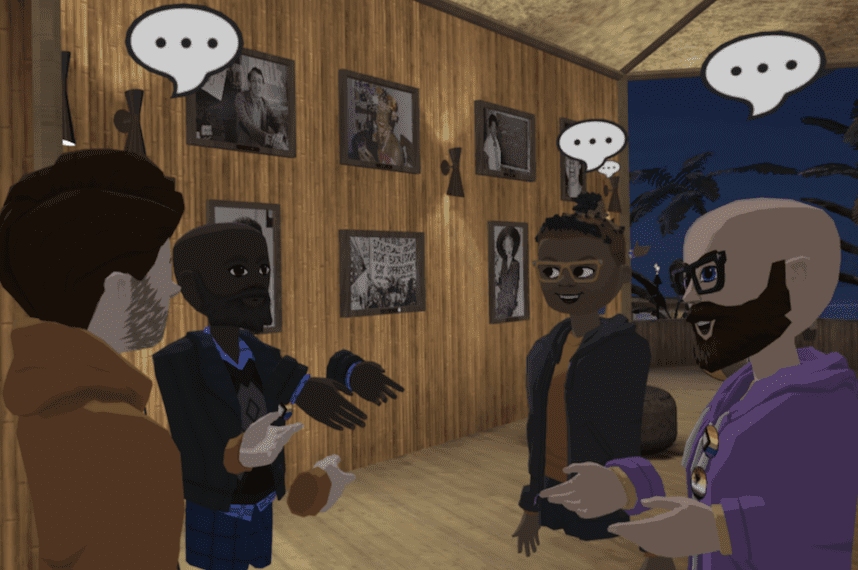Social virtual reality is opening new ways to play video games, hang out with friends and hold business meetings, but the fast-growing technology is also showing a dark side.
When people congregate in immersive virtual worlds, harassment can follow, as it has on other platforms, such as social media and video games. The rising concern has prompted Guo Freeman of Clemson University to take a closer look.

Freeman, an assistant professor in the School of Computing, has launched new research aimed at better understanding the characteristics of online harassment in social virtual reality and what technologies can be developed to combat it.
“I think it’s a very important topic because now we have more and more young people using social VR, and because of the pandemic, more and more people are getting VR sets, and the price is going down,” she said. “With the increase in popularity, it’s important to look at how we can make those environments safer.”
Freeman’s work is funded with $399,785 from the National Science Foundation.
Amy Apon, the C. Tycho Howle Director of the School of Computing, said Freeman is well positioned to lead the project.
“Dr. Freeman’s rich experience in researching collaborations and relationships in virtual worlds and online gaming has laid the foundation for success in her latest project,” Apon said. “I congratulate her on this well-deserved grant.”

Online harassment has been a problem for years. Forty-one percent of U.S. adults have experienced online harassment, and 66% have seen it happen to others, according to a 2017 study by the Pew Research Foundation.
Some of the questions Freeman is investigating include whether social virtual reality could change how harassment happens and how intensely it is felt.
In social virtual reality, the movements of a 3D virtual avatar correspond with the real-life-movements of the person controlling the avatar. People can have real-time conversations with each other via voice chat, and it could even be possible to simulate touching and grabbing through their avatars.
The capabilities make the experience more immersive and lifelike but raises questions about how they could be misused. For example, if one avatar gets physically close to another in social virtual reality without asking for permission, could it lead to feelings of harassment?
The Freeman team will especially focus on marginalized populations most likely to experience online harassment, including women, LGBTQ populations, underrepresented groups, and people with disabilities.
Freeman said her team’s high level of productivity and diversity make it uniquely qualified to conduct the research. As many as five Ph.D. students will work on the project, introducing them to cutting-edge topics and technology.
“This will help them build their portfolio,” she said. “They will either go on to develop better and safer virtual spaces for people or become the next generation of expert researchers in this area.”
While virtual reality has not yet become an everyday household presence in the same way televisions have, their use is growing and companies are pouring resources into developing the technology.
Previous research found that harassment is already happening in social virtual reality. Twenty-eight percent of female users and 21% of male users reported they had experienced harassment in social VR, and 42% of participants said they witnessed someone else being harassed, according to a 2017 study in IEEE Annual International Symposium Virtual Reality.
“There is racism, sexism and anti-LGBTQ sentiment,” Freeman said. “Those things are definitely happening now. It’s just that social VR is so new that not many people know about it. That’s why it is important to do this research now so we can capture those problems earlier and learn how to mitigate them.”
Get in touch and we will connect you with the author or another expert.
Or email us at news@clemson.edu

